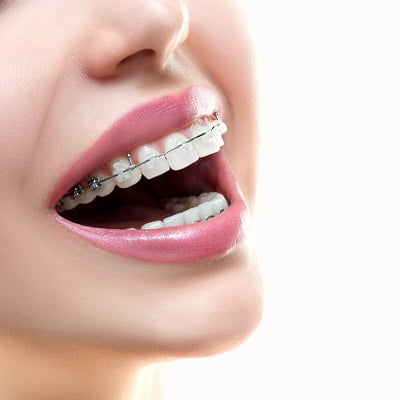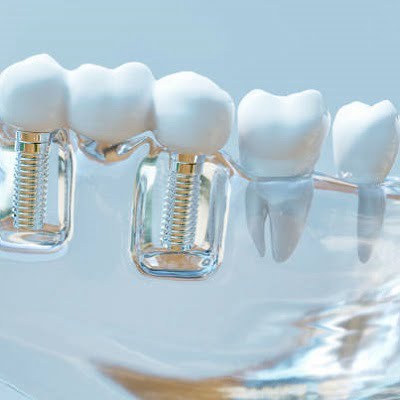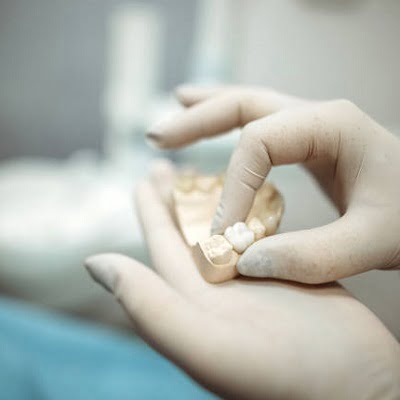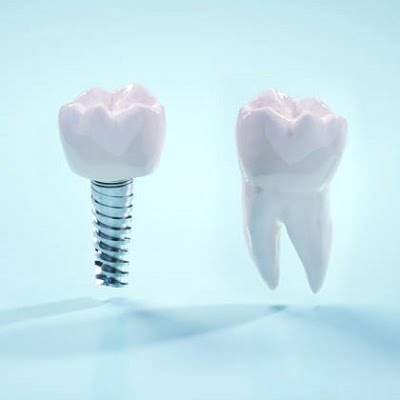Why Choose SKN Cosmetics?
- Expert Dental Surgeon with Global Qualifications: Led by Dr. Usama Hayat Ghauri, an esteemed dental specialist with over 6 years of hands-on experience in general and cosmetic dentistry.
- Advanced Techniques for Faster Healing: Our clinic combines medical precision with cutting-edge implant technology to ensure minimal discomfort and faster recovery times..
- Painless and Comfortable Dental Experience: Understanding patient anxiety, we offer painless cosmetic dentistry using safe sedation options.
- Exceptional Success Rate & Lasting Results: With an impressive 95% treatment success rate, SKN Cosmetics ensures long-lasting, natural-looking results.
- Patient-Centered Recovery Support: Our team provides personalized post-operative guidance, routine checkups, and professional cleaning sessions to help your implants heal perfectly and last a lifetime.
Implants that Look, Feel, and Function Like Real Teeth!
Have you just got out of the dentist’s clinic after getting a Dental Implant Surgery? Are you in pain and also worried about how you’re going to go through the vital stage, which is known as the recovery period? Comprehending the recovery period in detail is a must. Are you in search of tips that can help make your recovery go smoothly and comfortably?
In this blog, we’ll provide a comprehensive overview of everything you need to know about the recovery of dental implants. Including several information, like what you can anticipate throughout the process and the maintenance guide for your implants.
How Can a Dental Implant Surgery Recovery Be Done? | Turn Discomfort into Confidence with Proper Implant Recovery
The recovery from Oral Rehabilitation Surgery can be done by combining care and patience, along with following all the surgical recovery directives that were given by your dentist, which promotes faster healing. The recovery process should be done with consistent oral hygiene to prevent any upcoming risks and infections.
The Recovery Timeline of Cosmetic Dental Restoration | Your Guide to a Smooth Journey
Phase 1: Post-Surgery Period (24 – 48 Hours)
A Look Ahead: You may experience benign swelling and insignificant bleeding at the implant site, which are common. You may also experience a small range of misery or bruising as your mouth begins to heal.
Immediate action steps:
Apply any cold compressors, like ice packs.
Don’t take stress and stay calm.
Bite on the gauze for 30-60 minutes.
Use the pain medication your dentist prescribed.
Phase 2: Early Healing Stage (1 – 2 Weeks)
A Look Ahead: You’ll notice a reduction in distress and experience the swelling subsiding. Basically, the initial stage of the gum tissue’s healing begins. You may still notice a little bit of sensitivity when you’re eating or brushing your teeth near the implant site.
Key focus area:
Always use a soft-bristle brush and practice excellent dental hygiene.
Your diet should consist of soft and fluid items only
Use an antibacterial mouthwash or saline solution to keep your mouth disinfected.
Refrain from consuming hot and spicy dishes, and also don’t use straws
Phase 3: Osseointegration Phase (1 – 3 Months)
A Look Ahead: During this crucial stage, the implant integrates with the bone structure, a phenomenon known as osseointegration. This ensures a solid, fixed structure for your future crown. Fun fact, this is also called the silent stage because you won’t feel anything.
Key focus area:
Continue following all dental instructions carefully.
Maintain a healthy diet to accelerate bone mending.
Gently clean the site with your toothbrush and floss.
Avoid chewing sticky or hard items that might exert undue pressure.
Phase 4: Abutment Placement and Gum Healing (3 – 4 Months)
A Look Ahead: After the implant has fully osseointegrated, the dentist then places the abutment, serving as the connector between the implant and the restoration. You may experience mild soreness or gum irritation as the area starts healing again.
Key focus:
Maintain strict cleanliness of the site to avoid infection.
Adhere to the nutritional advice from your dentist.
Attend all checkups to monitor gum healing.
Phase 5: Final Crown Placement and Maintenance (4 – 6 Months)
A Look Ahead: The customized dental crown is placed in your mouth, which finally completes your cosmetic smile enhancement. Now, the result is a tooth that is indistinguishable in both form and function.
Key Focus:
Protect your oral health by maintaining good hygiene and brushing every day..
Ensure optimal oral health with regular preventative care.
Refrain from grinding your teeth and chewing on hard items.
And overall, enjoy your fully restored, confident smile!
SKN Cosmetics – Leading the Way in Smile Restoration!
Book us at SKN Cosmetics to achieve the best Dental Implants in Islamabad, and guidelines for a safe and comfortable recovery from our expert dentists, because every beautiful smile deserves a peaceful recovery.









